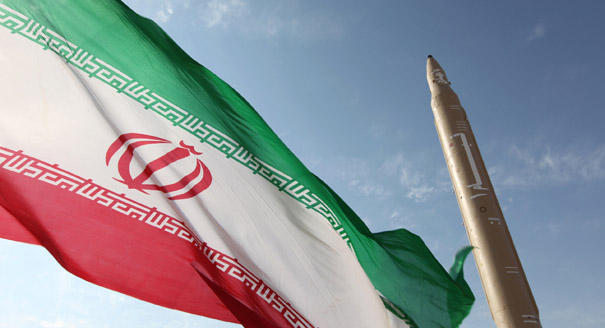The recent nuclear agreement with Iran will likely have far-reaching effects on conflicts across the Middle East, particularly the war in Yemen.
On July 14, the nuclear negotiations between Iran and Western powers resulted in an agreement by which Western countries ended long-standing international sanctions on Tehran in exchange for Iran renouncing all military nuclear ambitions. While the over-100-page agreement mainly addresses technical details, it is likely that it will indirectly impact various issues in the region, such as the traditional Saudi-Iranian struggle for regional influence, Hezbollah in Lebanon, the ongoing war in Syria, and more recently the war(s) in Yemen.
Since the nuclear negotiations entered their final round, Saudi Arabia has received strong support from the West in its war in Yemen, in what can be described as a consolation prize after the kingdom failed to dissuade its Western allies from the deal with Iran.
Yemen has become a new battleground where Iran and Saudi Arabia are engaged in a proxy war, taking advantage of local Yemeni conflicts and complexities. While it is possible that the nuclear agreement will exacerbate tensions in Yemen, it may also yield positive results. There is still a chance to transform Yemen into a model of consensus instead of a site of regional conflict.
In the Midst of Conflict, an Unexpected Opportunity
Six months ago, a coalition of forces led by Saudi Arabia began launching airstrikes against militants loyal to former Yemeni president Ali Abdullah Saleh and the Zaydi Islamist faction Ansar Allah, better known as the Houthis. Despite the local roots of the war, it has now without a doubt become part of a wider regional struggle—and that’s where the Iran nuclear deal comes in.
In a recent interview with the Saudi-owned newspaper al-Asharq al-Awsat, U.S. Secretary of State John Kerry said that the agreement with Iran had focused exclusively on the nuclear issue. But he added that he would now consult with his counterparts in the Gulf about ways to engage with other regional issues. This statement coincided with a visit by Iranian Foreign Minister Mohammad Javad Zarif to the Gulf states, aiming to reduce the tension caused by the nuclear agreement. Days before his visit, Zarif wrote an article entitled “The Neighbor Before the House” (al-jar qabl al-dar) in the Lebanese newspaper al-Safir, where he argued for better Gulf-Iranian relations and suggested Yemen as a model for working together toward regional peace between the Gulf and Iran.
For parties who want to push peace in the region forward, these developments are an opportunity to be exploited.
The nuclear deal has reduced tension and improved the West’s ability to communicate with Iran. If this is extended to the West’s allies in the region, it could change things considerably and perhaps even pave the way for regional peace in Yemen. It may be possible to harness this opportunity to exert pressure on Tehran to “tame” its Houthi allies in Yemen and, perhaps most importantly, to provide guarantees that the Houthis will commit to any agreements concluded in the future. This point is all the more important in view of the fact that many Houthi violations of previous agreements stemmed from the lack of a guarantor that could pressure the group to comply, given the declining power of local parties and the Houthis’ general indifference toward international resolutions. As long as Iran was isolated, it had little reason to engage constructively with the Gulf Arabs or the West over Yemen. Now, things may be changing.
Mutual Escalation in Yemen
Saudi Arabia’s current policy toward Iran, both inside and outside Yemen, is more reactive than active—but the Saudis still have the upper hand in Yemen. However, Saudi Arabia’s insistence on linking the Houthis to Iran could reduce its influence by pushing the group further into Iran’s arms as it begins to perceive Tehran as its only window to the outside world.
As for Iran, it will have to learn the lesson of the famous Turkish proverb: “He was who not educated by time, will be educated by Yemen.” In other words, Iran must avoid drowning in a complex and depleted country.
Over the past year, Iran’s role has grown in ways unexpected even for Iranian leaders themselves. According to one senior Yemeni source, decisionmakers in Tehran were split over how to approach the conflict in Yemen. Those linked to the Iranian Revolutionary Guard Corps led by Qassem Suleimani, with the support of Iran’s Supreme Leader Ali Khamenei, were ideologically inclined toward a more direct Iranian role in the region generally and in Yemen in particular. However, President Hassan Rouhani and Foreign Minister Zarif thought Iran should be more cautious in Yemen and that it differed greatly from Iraq or Syria.
The conviction of the Zarif-Rouhani camp that Iran should not rush into Yemen was based not only on the complexity of the country but also on the fact that Iran’s coffers were being drained by expenditures in Syria and Lebanon. In addition, the Houthis had long been seen as a marginal ally.
After the fall of the Yemeni capital Sanaa into the hands of Houthi rebels in September 2014, the Saudi government—according to senior Yemeni officials—blocked the transfer of half a billion dollars in various aid packages. In an attempt to compensate for this, the Houthis sent a delegation to Iran. According to sources close to the Houthi leadership, they requested a billion-dollar support package in fuel subsidies to replace the blocked Saudi aid, but the delegation returned from Tehran empty-handed. Following the Houthi coup against Yemeni President Abd Rabbu Mansour Hadi in January 2015, Iran made a promise to support Yemen with oil derivatives and electricity generation. But so far none of these promises have been fulfilled.
While it is clear that the Saudi-led intervention in March 2015 then tipped the scales in favor of the Suleimani-Khamenei camp, the nuclear deal has worked in favor of Rouhani and Zarif.
A Window of Opportunity
With the nuclear deal expected to lead to the lifting of international sanctions, new possibilities are opening up for Iran, which may already have reached the limits of power projection through the Houthis. South Yemen is predominantly Shafi’i Sunni and Iran’s attempt to force itself into that region, using Zaydi militias with a sectarian approach, would alienate the local population. The ramped-up Saudi role from March onward, complemented by Emirati, Bahraini, and now also Qatari ground forces, has further raised the costs of Iranian proxy warfare. Iran’s allies in Yemen remain militarily strong, but their political clout is limited and they have an abundance of local enemies, while their own leaders are subject to international sanctions.
By opting for another course and seeking an understanding with the Saudis and their Yemeni allies after the nuclear deal, Iran could still play an influential role, but through sound official channels. This would be more beneficial to both countries.
To this day, Iran has not sponsored a single reconstruction project in Yemen, not even in the war-torn Saada Province, the heartland of the Houthi leadership. But with the money available to it after the easing of sanctions, Iran could propose economic projects in formal and transparent ways, which could earn it more reliable and permanent popular support.
The price that the region is paying and will pay as a result of the escalating Iranian-Saudi conflict is very high and poses a threat both to the region and the world. Therefore, it is essential to seize any opportunity to bring together these regional powers. Some Gulf states, such as the United Arab Emirates and Oman, have responded positively to the nuclear deal and may be able to function as a link between Saudi Arabia and Iran. Some Gulf Arab leaders also feel that their states should avoid being drawn deeper into a sectarian conflict with Iran. This is especially true of Oman, Kuwait, and the United Arab Emirates.
A Saudi-Iranian dialogue could quickly translate into progress in the Yemeni conflict, even though it would be unlikely to impact more complex cases like Syria and Iraq.
It is now up to diplomats on both sides of the Gulf to strengthen relations between their countries and to open communication channels between them. The two sides can, if they really want to, reach a deal that would at least exempt Yemen from the regional conflict. It would spare Yemen much destruction, while also helping Iranians and Saudis to disentangle themselves from what could be a very protracted conflict. The leaders in Tehran and Riyadh should realize that it is in their joint interest to stop this war and to search for common ground in Yemen, regardless of the ferocity of their conflict in other parts in the region.








